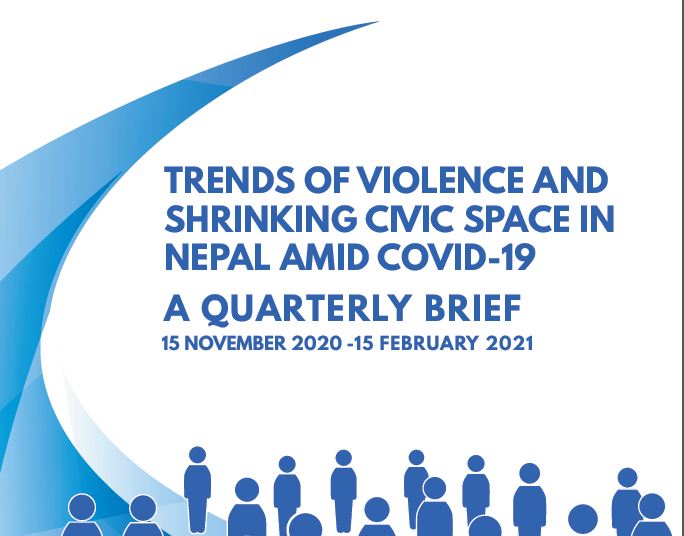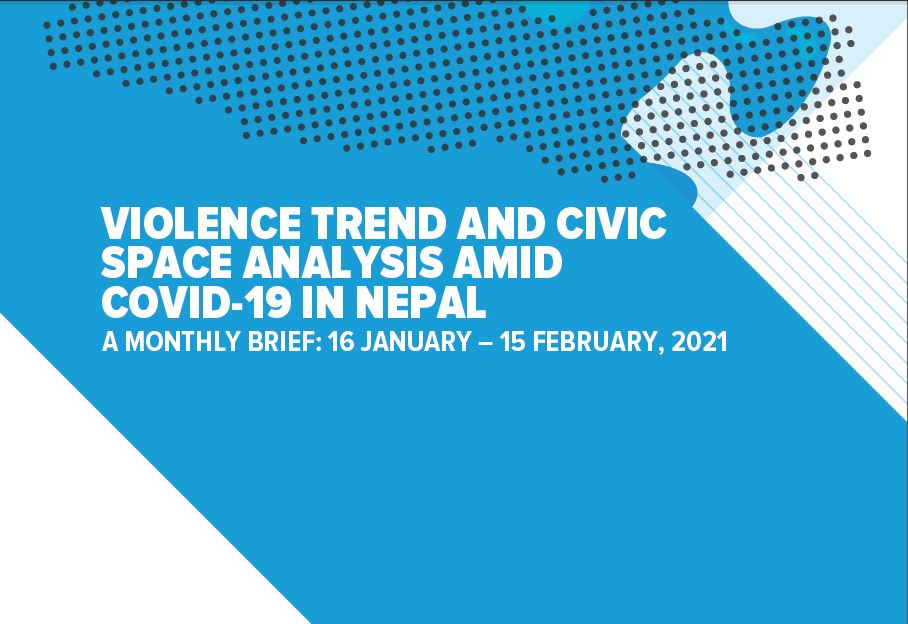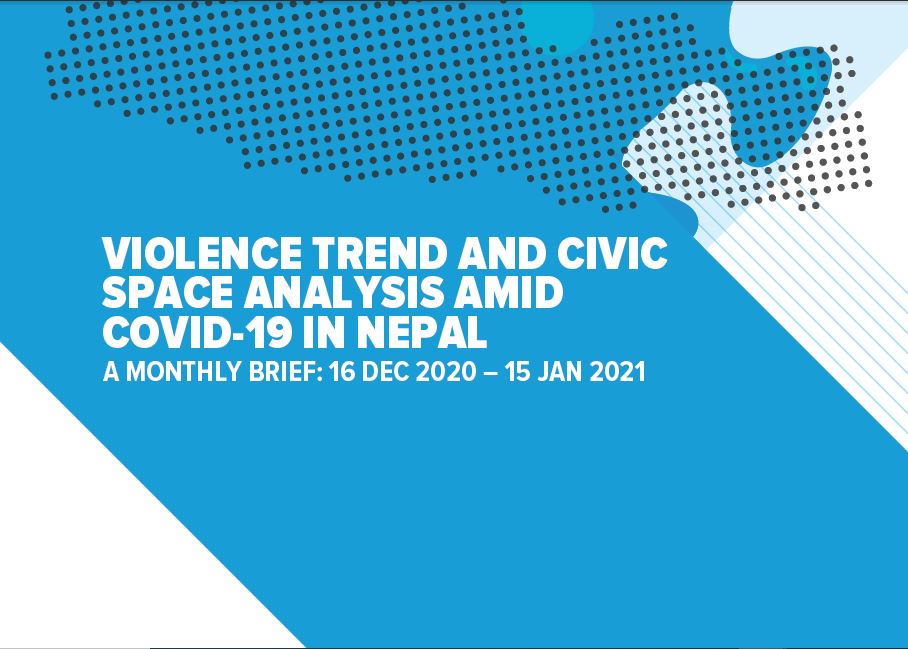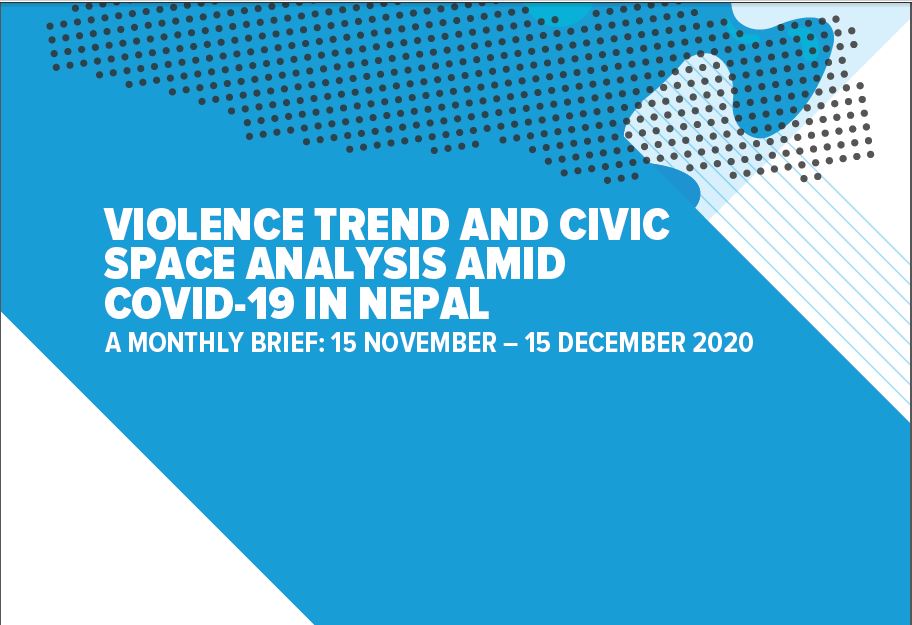Incident Reports
Nepal government has failed to take steps to ensure full freedom of press: Reporters Without Borders
2019-04-18
Nepal
Nepal’s position in the World Press Freedom Index 2019 has remained unchanged at 106, according to Reporters Without Borders, which says the environment for journalists working for independent media outlets in the country is still extremely difficult.
“In late 2017, the first local, provincial and parliamentary elections in 20 years were marked by many violations of the freedom to inform. But the government formed in 2018 under KP Oli failed to take steps to ensure respect for the ‘full freedom of the press’ enshrined in the preamble of Nepal’s 2015 constitution,” Reporters Without Borders, an advocacy group on issues relating to freedom of information and freedom of the press, said on Nepal’s press freedom situation, which it described as “‘victim of political vicissitudes”.
The report comes amid growing concerns among journalists over the government crackdown on them for writing news. Government authorities earlier this week arrested Arjun Giri, an editor of a weekly in Pokhara, for publishing a story online about a local businessman under laws intended to authenticate electronic transactions and discourage cybercrime and not related to journalists or media.
[Read: Nepal's government is aggressively pursuing journalists and it could get worse under a new legislation]
Last year, Ram Sarraf, a Birgunj-based journalist, was accused of cybercrime under the Electronic Transaction Act and taken to court for publishing a story online.
Reporters Without Borders has also expressed concern over the new criminal code the government has introduced.
“The new criminal code adopted in August 2018 poses major new threats to press freedom because several of its provisions hamper investigative reporting and restrict criticism of public figures,” Reporters Without Borders said. “Another disturbing development was the anti-media rhetoric which government representatives began using and which was widely reproduced in the government’s newspapers, radio stations and TV channels.”
Last year, Minister for Communication and Information Technology Gokul Baskota ordered state media to muzzle--and counter--news items related to Nirmala Pant, a 13-year-old girl from Kanchanpur who was raped and murdered, and Dr Govinda KC, who was then staging a hunger strike demanding reforms in the medical education sector. The minister, who had summoned editors of five state media outlets, had gone to the extent of ordering them to counter reports published by private media, and effectively discredit and mitigate their trenchant coverage of government’s inaction in both cases.
The Oli administration had met with severe criticism from public and the media for failing to nab the culprit(s) in the rape and murder case. The government was also criticised for not paying heed to Dr KC’s hunger strike and the former agreements.
Experts said Nepal can further slip in press freedom index if the government continues to take harsh measures against the media and mediapersons.
"A stable government must be able to form policies to ensure press freedom,” said Taranath Dahal, chairman of Freedom Forum, a civil liberty group that advocates free speech, press freedom and freedom of expression. “While Nepal’s position has remained unchanged this year, there are already concerns over press freedom in Nepal.”
Nepal had fallen six places to 106 in the 2018 report.
“With the threat of prosecution and continuing violence in the field, the environment for journalists working for independent media outlets is extremely difficult [in Nepal],” Reporters Without Borders, which publishes the press freedom index annually, said.
Among the South Asian countries, Nepal ranks third after Bhutan (80) and Maldives (98). Nepal is followed by Afghanistan (121), Sri Lanka (126), India (140), Pakistan (142) and Bangladesh (150).
Norway tops the World Press Freedom Index 2019 while Turkmenistan ranks last.
http://bit.ly/2XmnTnx
Related Reports
HRD Issues / Rautahat
Rautahat correspondent of Himalaya Television assaulted by crusher staff
HRD Issues / Saptari
Saptari journalist on continuous protest demanding protection of press freedom and action against attack on journalist
HRD Issues / Parbat
Arrest permission under cyber crime issued against journalist after raising issue of irregularity over social media
HRD Issues / Sunsari
Journalist issued threat in Sunsari over news report
Related Trend Analysis
Analysis

THE NEPAL PEACE MONITOR ANNUAL REVIEW: 2020
October 25, 2021
Human Trafficking / LGBT+ Rights / GBV / Political / Children’s Rights / Senior Citizens’ Rights / HRD Issues / Human Rights / Interpersonal Violence / Governance / Covid-19 / Civic-Space / PwD





